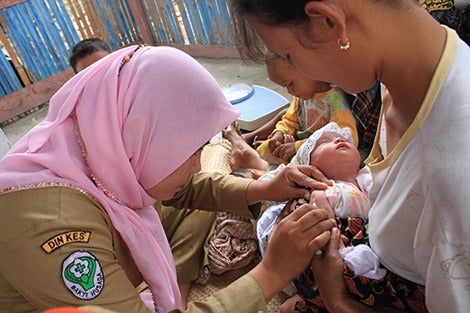September 6, 2018—Universal health coverage is not enough to save lives in low- and middle-income countries (LMICs), according to a report led by researchers from Harvard T.H. Chan School of Health. Expanding access, they write, must be accompanied by investments in health systems to ensure quality of care.
The study found that there are an estimated 8.6 million deaths in LMICs each year from treatable conditions including vaccine-preventable diseases, maternal disorders, and road injuries. Of these deaths, 3.6 million are due to insufficient access to care, but significantly more—5 million—are due to poor quality care. For example, a provider may spend too little time with a patient or be unqualified to diagnose their condition.
The study was published online September 5, 2018 in The Lancet as part of The Lancet Global Health Commission on High Quality Health Systems.
“Quality care should not be the purview of the elite, or an aspiration for some distant future; it should be the DNA of all health systems,” Commission Chair Margaret Kruk, associate professor of global health, said in a Lancet press release. “The human right to health is meaningless without good quality care.”
In an interview with NPR, Kruk called for a transformation in the way the global health community supports LMICs. “We have to stop flooding the countries with quick fixes and shiny solutions,” she said.
Read the NPR article: What kills 5 million people a year? It’s not just disease
Learn more
New Research: Poor-Quality Health Care A Leading Killer (Harvard Global Health Institute)
Q&A: Margaret Kruk, improving health care quality in resource-poor countries (Harvard Public Health magazine)
Achieving high quality health care around the globe (Harvard Chan School news)
Photo: iStock
